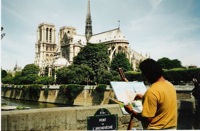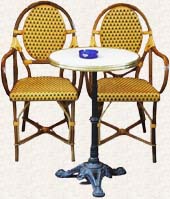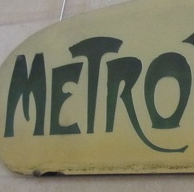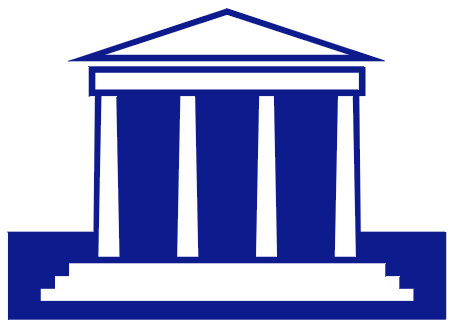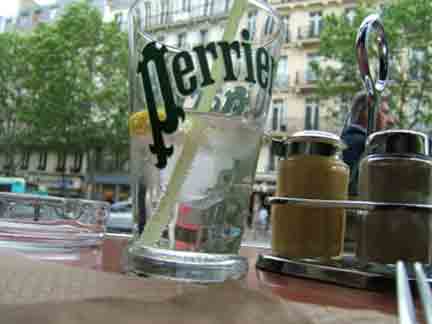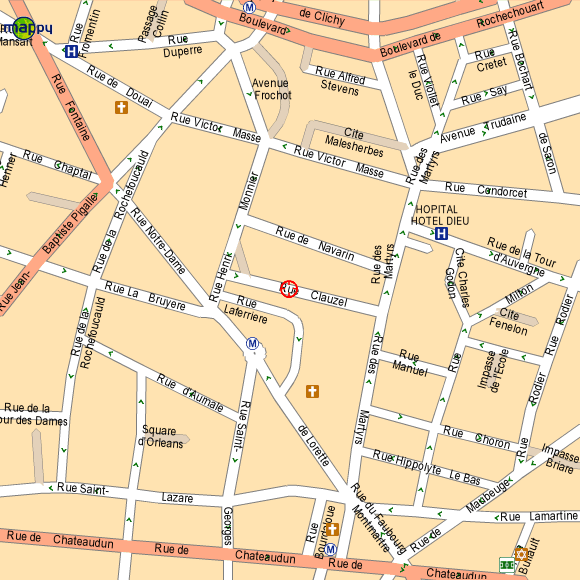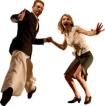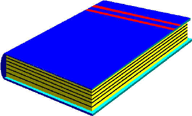Daily Life and Little Necessities
Some folks have asked for some information on how to carry out basic tasks, such as going to the post office, understanding subtleties of French behavior, and dealing with the inconveniences that inevitably accompany living in or visiting a big city. Here's a start. Let me know what other sorts of information might be useful.
You should check with your cell company before you arrive in France, as they differ wildly in what they offer and what they charge. It seems to Tom that T-Mobil offers the most economical and the easiest service (you don't have to do anything to use 3G networks, but you can pay a premium for 4 or 5G; again, doing nothing to set up the plan, phone calls cost something like 25 cents per minute).
Emergency Phone Numbers
| European SOS (free: all emergencies) | 112 |
| Police | 17 |
| Fire | 18 |
| Ambulance | 15 |
| SOS Doctors | 0.820.332.424 |
| Night Pharmacy | 01.42.25.49.95 |
| LGBTQ Center (in French) | 01 48 06 42 41 |
| Lost items | 01.55.76.20.00 |
| Préfecture de police | 01.45.31.14.80 |
| American Express | 01.47.77.74.54 |
| Mastercard | 01.45.67.84.84 |
| Visa | 01.42.77.11.90 |
| English language crisis line | 01.46.21.46.46 |
If calling from a mobile phone, the general SOS number is 112.
La Politesse
I've always been perplexed by the number of Americans who say that the French are rude. I have a sneaking suspicion that those who say the French are rude have been (perhaps inadvertently) rude first. There are a number of things you need to know in order to keep the wheels of polite and effective social interaction well greased.
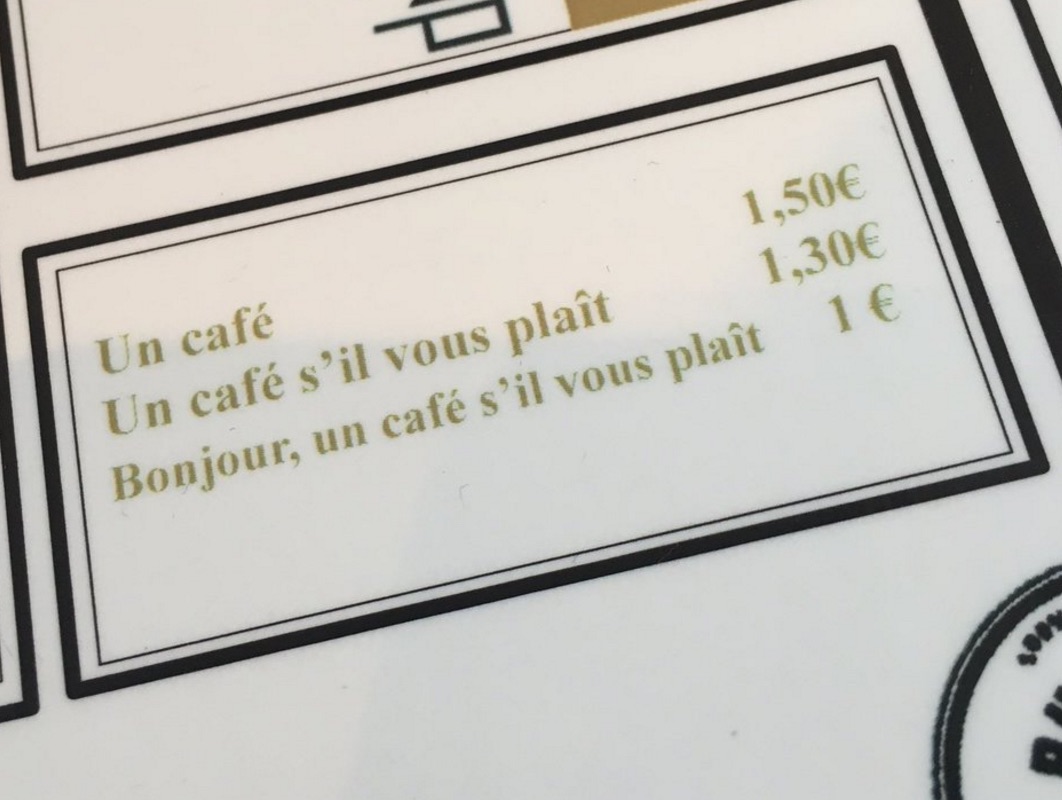 First, any time you initiate a transaction of any sort—be it commercial or social—always, always begin with "Bonjour." This includes restaurants, and it also includes the cashier at the grocery store. I cannot stress enough how important this is. Even if you don't speak a word of French, you must at least eek out this much. Failure to do so will make you look like a rude, unmannerly egostistical lout, and you should not be surprized, then, to be treated rudely in turn. Upon departure, always, always say "au revoir" or "bonne soirée" (but you will find that not everybody observes this rule). You will note that people at every level of society observe these rules—including children and even unruly teenagers.
First, any time you initiate a transaction of any sort—be it commercial or social—always, always begin with "Bonjour." This includes restaurants, and it also includes the cashier at the grocery store. I cannot stress enough how important this is. Even if you don't speak a word of French, you must at least eek out this much. Failure to do so will make you look like a rude, unmannerly egostistical lout, and you should not be surprized, then, to be treated rudely in turn. Upon departure, always, always say "au revoir" or "bonne soirée" (but you will find that not everybody observes this rule). You will note that people at every level of society observe these rules—including children and even unruly teenagers.
Second, if you bump into someone, step on a foot, jostle a passer-by, or whatever, always say "Pardon" (which is pronounced with the two syllables equally stressed, and the second syllable pronounced nasally: just do your best). If you do something more serious, then say "Excusez-moi."
Third, when you meet someone, shake hands, and when you encounter that person again—no matter how often you see that person again in the future, even if it's every day—shake hands again. A French handshake differs from an American one in that it is quick, light, and typically accompanied by a look in the eye. Do not shake someone's hand up and down repeatedly: that does not convey enthusiasm or warmth so much as lunacy.
Pharmacies
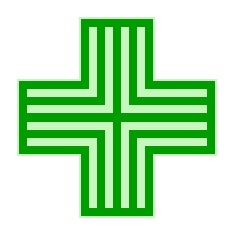 The green cross you see here is the sign for pharmacies in France (and Belgium, too, I think), although you shouldn't expect them all to look just like this one here. Often they're very stylized, but you'll always recognize a green cross, regardless of the particular form it takes. Pharmacies in France carry pretty much what you'd expect—but don't go there for basic toiletries and things like that. Those are things you'll get in a department store such as Monoprix, or even in a corner bodega. If you have a specific ailment, go to the pharmacy and tell the pharmacist what's wrong. He or she will recommend an appropriate medication for you (and often these are things you normally wouldn't know about as typical over-the-counter medications in the US). Pharmacists in France tend to be very helpful, for things such as minor injuries, mild to moderate illness, and chronic conditions.
The green cross you see here is the sign for pharmacies in France (and Belgium, too, I think), although you shouldn't expect them all to look just like this one here. Often they're very stylized, but you'll always recognize a green cross, regardless of the particular form it takes. Pharmacies in France carry pretty much what you'd expect—but don't go there for basic toiletries and things like that. Those are things you'll get in a department store such as Monoprix, or even in a corner bodega. If you have a specific ailment, go to the pharmacy and tell the pharmacist what's wrong. He or she will recommend an appropriate medication for you (and often these are things you normally wouldn't know about as typical over-the-counter medications in the US). Pharmacists in France tend to be very helpful, for things such as minor injuries, mild to moderate illness, and chronic conditions.
Change Crises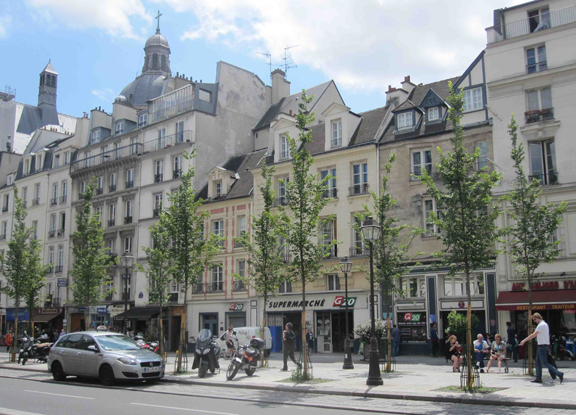
I've made reference to this unusual and, I believe, ideosyncratically Parisian phenomenon in numerous spots throughout Tom's Guide. A change crisis occurs when the amount you owe is not a whole number of euros, but something with change, such as 4 euros and 55 centimes. Does this happen a lot? Of course! Does it produce a crisis? Often.
Many of the people you are dealing with will want and/or expect you to produce the centimes (in the above example, 55 of them, even though it would make so much more sense for you simply to hand over 5 euros). Sometimes it makes sense; other times it's preposterous. Do not be surprized if a line comes to a standstill because a customer doesn't have or will not produce the odd combination of centimes that the clerk demands. It could happen to you. You're on your own on this one.
Paying with Credit Cards
People pay for everything with credit cards, so much so that you'd think cash was obsolete. (On the other hand, there always seems to be somone using the ATM that I want to use, so go figure.) Your American cards will work here, and it will work exactly the way it does in the U.S. You'll see Europeans swipe their cards through a machine and then enter a PIN (it's called a 'puce' [flea] in French), but your card will show up on the cashier's or waiter's terminal as requiring a signature (and sometimes they won't even ask you for it, but be prepared). Sometimes you'll want to use your card in automated devices, such as at the airport or to buy metro tickets. When it asks you to enter your code, just push the (typically) green "Valider" button, and everything will be copacetic.
Breakfast
You'll find Amerian-style breakfasts at nicer (i.e., more expensive) hotels, and they will, in fact, be much more expensive. A typical French breakfast might consist of coffee and/or juice, a croissant or a tartine (bread with jam and/or butter), yogurt, and/or fruit. You can get either at many cafés; at cafés in more out-of-the-way places you might only be able to get a French breakfast. So eat a bigger lunch, already.
Lunch
Typically bigger than what you might have in the US, but you don't have to gorge out if you're not hungry. You'll see menus featuring two and three courses, and you'll see people eating them, too (and then you'll wonder how the French stay so slim). Order what you want and don't feel pressured to get some huge meal, because no one will care what you eat at lunch (but dinner, well, that might be different). Get a croque monsieur, which is a great invention: a toasted ham and cheese sandwich that will really blow you away.
Weird Odds and Ends
Don't wear sneakers with jeans, unless they're stylish; try not to let your suitcase block a seat on the metro; always say "bonjour" when you begin any sort of personal or business transaction whatsoever; say "au revoir" when you conclude a transaction, but say it in a nonchalant fashion, as though just uttering the sound bores you almost to tears; yes, you can, in fact, wear shorts in Paris, whatever your sex may be (and you'll see it all the time in the summer), but avoid the sneaker phenomenon; legally, you should have your passport with you a all times, and you can by stopped by police and asked to produce ID (but you probably won't be); more stuff as I think of it.
